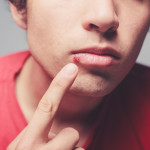 I go to the doctor every year for my usual physical, and never had blood work for herpes or any STD. It was never offered and my physician knows I’m sexually active. I only knew I had it when I had an outbreak!
I go to the doctor every year for my usual physical, and never had blood work for herpes or any STD. It was never offered and my physician knows I’m sexually active. I only knew I had it when I had an outbreak!
There are two types of herpes viruses that cause blister-like lesions, HSV1 and HSV2. By adult age, many people have been exposed to a herpes virus and have antibodies for HSV1 or HSV2. The reason many clinicians do not do routine blood testing is because having the antibody doesn’t give a patient any ideas as to where the HSV exposure occurred on their body, when the exposure happened, or whether they are at risk of transmitting it to others sexually. Having a positive HSV antibody could mean someone was exposed earlier in life. Clinicians encourage safe sex practices with condoms (for oral, vaginal and anal sex) and many will send swabs from lesions if/when they occur to determine if it is HSV1 or HSV2. HSV2 is a bit more likely to recur and suppressive therapy may be indicated. Once someone has had a herpes outbreak then they can transmit the virus to others in the future at any time, even when there isn’t a visible blister. Suppressive therapy can reduce risk of transmission to others. As for other STI’s, you should discuss the need for chlamydia, gonorrhea, HIV, and syphilis testing with your health care providers.
Source: Read Full Article